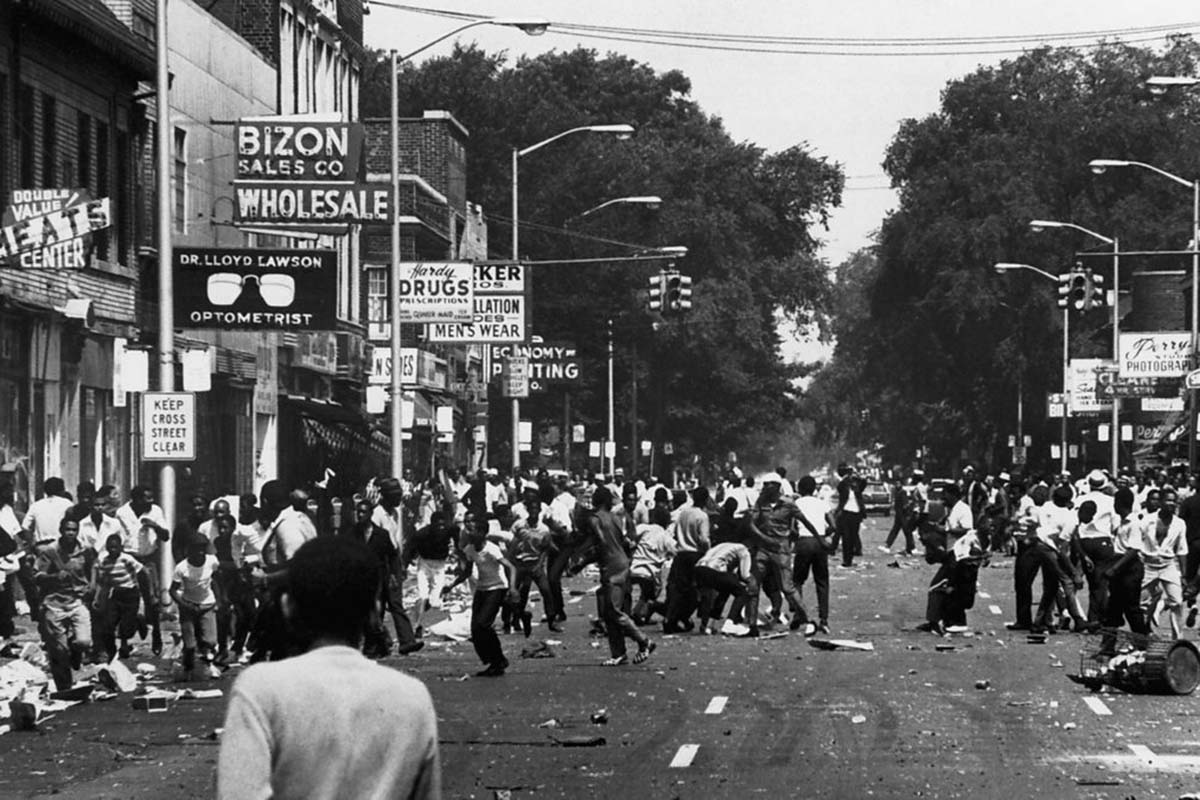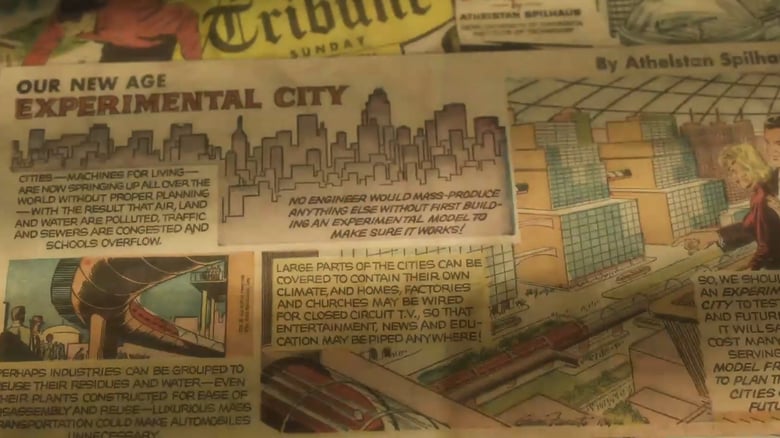by Glenn Dunks
The massive DOC NYC festival begins this week in – would you believe it – New York City. The festival runs from November 9 - 16 and showcasing over 250 films and events. We’re going to look at some of the films screening there that will hopefully make their way to theatres and VOD over the next year. This edition of our weekly Doc Corner is devoted to three films about cities and the way people interact within and around them.
12th and Clairmont
It is inevitable that Brian Kaufman’s 12th and Clairmount will be compared with Kathryn Bigelow’s Detroit considering both focus on the 1967 riots of the city. But whereas Bigelow’s production zeroed in on just one incident of the five-day series of violent and destructive action on the streets of the city, Kaufman’s film examines a much larger canvas, covering the time before, during and after the city's people responded to the significently white police force's swarm of brutality.

It’s a tactic that proves essential to beginning to understand the events that one person in this often compelling documentary describes as “the days of madness in July”...
12th and Clairmount is compiled predominantly out of old super eight footage and photography taken by Detroit residents as well as hand-drawn black and white illustrations by Rashaun Rucker that give life to moments that were not captured on film. While there are no talking heads to be seem on screen intercut among this fascinating archival material, newly recorded oral histories are overlayed with those who were there in 1967 talking about their experiences living in the city over this time. While it is a theme that lingers, it's not until the final stretch stings with a melancholic sadness of how the city experienced a mass exodus following the riots and was never able to truly recover. Rather, it slid further in decay albeit with far less fanfare on the nightly news and in the papers than there had been when there was an anti-black angle upon which to hang a narrative.
The documentary is unfortunately scored by songs and music that sound routinely out of sync with the material they are supposed to be underscoring. It’s a curious misstep that proves surprisingly erroneous, diluting the power of the footage that has been compiled. Especially in a film that is otherwise very well put together that has put considerable thought into as many facets as possible of the story that can be told in 90 minutes. Of course, as documentary cinema evolves, Kaufman’s workmanlike structure will likely prove too simple for some, but what it lacks in editorial bombast it makes up for with essential and all too relevant images that exemplify how little America has evolved.
The Experimental City
The first credit we see at the start of Chard Freidrichs’ The Experimental City is “Featuring the Archival Resources of”. After watching this often dazzling and entertaining documentary, it’s not hard to see why. Telling the story of newspaper comic artist, inventor, geophysisist, oceanographer and university Dean, Athelstan Spilhaus and his fantastical idea of an “experimental city”. It was to be a wondrous place where the concepts of the future would come together for a real life prototype of the world of tomorrow. Labelled MXC, or the Minnesota Experimental City – yes, Minnesota! – it was dream that went surprisingly far towards realization, although when the pricetag of $10billion in 1970s figures is raised, there’s little wonder to be found in why it never succeeded.

Like 12th and Clairmount, Freidrichs’ film is made predominantly out of archival material, but with low-key reenactments intercut throughout to dramatize audio tapes recorded of Spilhaus in private interviews and board mettings. While it is certainly a well-intentioned choice, these headless recreations add little excitement and are visually flat, in stark contrast to the archival treasures that could have taken their place. Especially with Freidrichs’ own editing having so much playful fun elsewhere with a collection of cross-cuts, multi-screens, colour saturations and widescreen collages of all the awe-inspiring drawings, blueprints, models and demonstration videos.
Covering Spilhaus’ warnings of climate change and the NIMBY crusade of Minnesotans unimpressed with their lands being chose to house this extravagant work of science fiction, there is an obvious overriding sense that this project was more than just something that slipped out of our fingers. The reaction to MXC was a bellwether of sorts to the reluctance of those in positions of power to evolve. Warnings of unsustainability go more or less ignored in favour of baby boomer petulance in the face of their wrongdoings in post-war industrial society.
The Iron Triangle
There are many films like Prudence Katze and William Lehman's The Iron Triangle. In fact, as I watched it, I couldn’t help but think of Rosie Jones’ 2011 documentary The Triangle Wars - another documentary about a bitter government fight against the redevelopment of a three-sided patch of land. The difference here, however, is that the dispute in Katze and Lehman’s film is something far murkier. While the audience is probably expected to side with the people whose lives are being uprooted, where The Iron Triangle succeeds is by showing how it isn’t that simple.

The iron triangle of the title is Willets Point, New York City. A triangular block of land that ;acks many modern, essential amenities yet is a nonetheless thriving destination for auto body shops; a community that serves its own as well as a occupying a particular role within the city's infrastructure. It’s obvious straight away that the land is an eyesore of tin, iron and steel with unpaved roadways, but are the livelihoods of its inhabitents worth that little that they should be uprooted with no solid plans for their relocation?
It’s a David and Goliath story, where Goliath sort of has a point. It’s what makes this otherwise very humbly produced documentary stand out amid a sea of similar documentaries where the audience’s allegiance is predetermined by the filmmaker. I found it smarter than the average while simultaneously providing cinematic proof of this relic location and its final days.